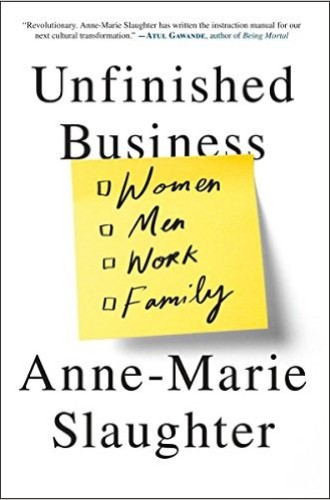Revaluing care
Three years ago, Anne-Marie Slaughter decided to leave Washington, D.C., and her position as director of policy planning under then Secretary of State Hillary Clinton. She returned to her academic position at Princeton University because she wanted to be more active in parenting her two teenage sons back in New Jersey. Although she only left one job for another—or as she describes it, traded a demanding, inflexible position for a demanding but flexible one—she was criticized for her lack of feminist ambition, for “dropping out.” In response, Slaughter wrote a much-discussed article in the Atlantic, “Why Women Still Can’t Have It All.”
Unfinished Business is Slaughter’s contribution to the stale women-in-the-workplace debate. She refreshingly argues that the social value we give to caring for other people is not simply a women’s issue: it concerns men, women, and the whole society’s common good. “Redefining the women’s problem as a care problem,” Slaughter writes, “broadens our lens and allows us to focus much more precisely on the real issue: the undervaluing of care, no matter who does it.”
Slaughter traces the story behind our society’s regrettable failure to adequately value care. For many generations men were considered the family’s primary breadwinners and were obligated to spend most of their time working outside the home. A workplace culture of long hours, inflexible schedules, and valorizing work over family limited men’s involvement in caring for children, the disabled, and the elderly. As women entered this male-dominated workforce, they too were asked to adopt values that undermined the social significance of caregiving. That women cannot—or will not—commit to the workplace at the expense of their families is thought to be a reason why many women opt out of successful careers, particularly at high levels of organizations.





